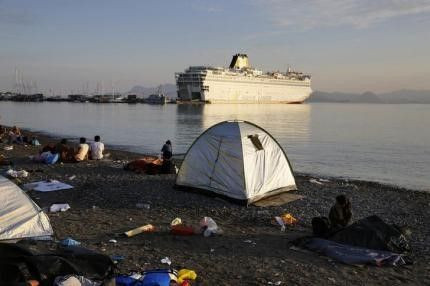Greece Urges Health Precautions After Suspect Cholera Case On Kos

ATHENS (Reuters) - Greek health authorities urged the public to take health precautions on Friday after a suspected cholera case was discovered on Kos island, a tourist destination and entry point for migrants from the Middle East and Asia.
An official for the Centre for Disease Control and Prevention told Reuters a 79-year-old Dutch tourist was transferred from Kos for tests and treatment in an Athens hospital with symptoms of cholera, including bad diarrhea and high fever, but the diagnosis was not yet confirmed.
"We are proceeding with more examinations to avoid the danger of a contagious disease," the center said in a statement.
It told citizens to wash their hands and observe strict hygiene rules before consuming food and water.
Kos has seen an influx of thousands of migrants and refugees from countries including Syria, Iraq and Afghanistan who cross the Aegean Sea from nearby Turkey. In September, Iraq's first major cholera outbreak since 2012 rose to at least 121 cases.
Cholera is extremely rare in Greece, with the last confirmed case reported in 1993 and before that in 1986, according to World Health Organization Data.
"There are fears that a case may have been transmitted through the migratory wave," the center official said.
Cholera is spread mainly through contaminated water and food and, if untreated, can cause death by dehydration and kidney failure within hours. It affects people of all ages, but children are at the highest risk.
There are two cholera vaccines approved by the World Health Organization, but they both require two doses at least a week apart – a factor which reduces their effectiveness if an outbreak of cholera has already begun.



























